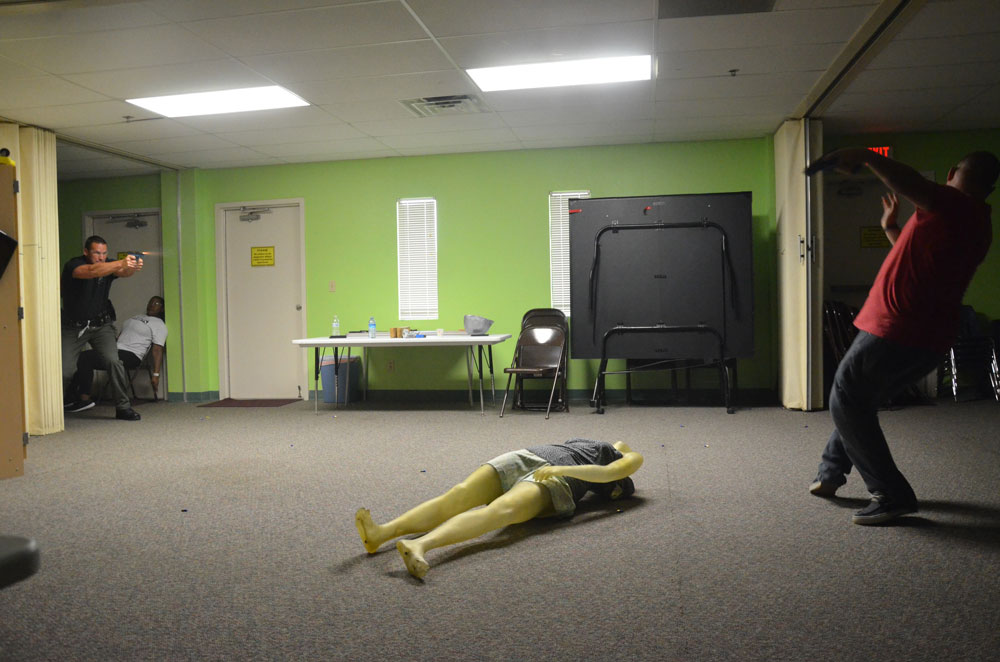
With several Black lawmakers heralding what they described as a starting point to improve community interactions with police, the Florida Senate on Thursday gave final approval to a bill that includes new use-of-force training requirements for officers.
The measure (HB 7051) moved swiftly through the Legislature after it was filed in the House about two weeks ago. After unanimous votes in the Senate and House, the bill is headed to Gov. Ron DeSantis.
The measure seeks to address aspects of policing that came under scrutiny after the death of George Floyd, a Black man who was killed by ex-Minneapolis police officer Derek Chauvin nearly a year ago. Chauvin, who was captured on video kneeling on Floyd’s neck, was found guilty by a jury last week of murdering Floyd.
“With the summer of unrest after the George Floyd murder, we needed to do substantial criminal-justice reform. This is a good start. It gives us a foundation to build upon for next session,” said Sen. Darryl Rouson, a St. Petersburg Democrat who is Black.
New standards aimed at limiting officers’ use of chokeholds are included in the proposal.
Chokeholds would be limited “to circumstances where the officer perceives an immediate threat of serious bodily injury or death to himself, herself, or another person” under the bill.
Changes to the way officers are trained also would include “alternatives to use of force, including de-escalation techniques.” Training also would instruct officers on a “duty to intervene in another officer’s excessive use of force,” and a “duty to render medical assistance following use of force.”
Sen. Audrey Gibson, D-Jacksonville, acknowledged the dangers that police officers face on the job but said training can help avoid negative interactions with the public.
“Those law enforcement officers, correctional officers — they’re our family, they’re our friends, they’re our church members, they’re our neighbors. They’re not perfect, and none of us are. They go into harm’s way on a daily basis. But, those things that we’ve seen nationally could have been avoided. That’s where the training and standards come in,” Gibson, who is Black, said.
Independent reviews would be mandated for use-of-force incidents involving deaths and intentional discharges of officers’ firearms if they result in injuries or deaths. The findings of those reviews would be reported to state attorneys.
If officers are fired, resign or retire, law-enforcement agencies would be required to keep information about the officers for a minimum of five years under the bill.
When officers apply for new jobs, the bill would mandate they disclose any investigations into “criminal, civil, or administrative wrongdoing and whether the applicant separated or resigned from previous criminal justice employment while he or she was under investigation.”
The measure also would require data to be collected on officers’ use of force, mirroring statistics collected by the FBI’s National Use-Of-Force Data Collection. The data would have to be reported to the Florida Department of Law Enforcement each quarter.
Gibson backed the provision related to data collection as the Senate debated the bill Thursday.
“As a state, we should require the data that we ask for. Because that data will also show us where additional training is needed, where additional standards are needed. And nobody should want to reject that,” Gibson said.
The only criticism of the bill from some lawmakers was that it doesn’t go far enough in seeking reforms to policing practices.
Sen. Randolph Bracy, D-Ocoee, said the measure is something future legislatures could build on.
“Many people have said that we haven’t gone far enough, but this is a step. I just believe that we can continue to build upon this work here,” Bracy, who is Black, said.
Rep. Fentrice Driskell, a Tampa Democrat who helped sponsor the bill, contrasted it with a controversial measure (HB 1) that DeSantis signed this month. While Republicans said the so-called “anti-riot” bill was needed to crack down on violent protests, Democrats said it would violate First Amendment rights and pose a threat to peaceful protesters.
“This legislation (HB 7051) stands in stark contrast to the dangerous anti-protest bill that Gov. DeSantis signed into law recently. It represents what can happen when we legislate with everyone’s best interests in mind. This bill is just the beginning and we will continue fighting for fair and just policing in Florida,” Driskell, who is Black, said in a statement.
–Ryan Dailey, News Service of Florida





























Leave a Reply